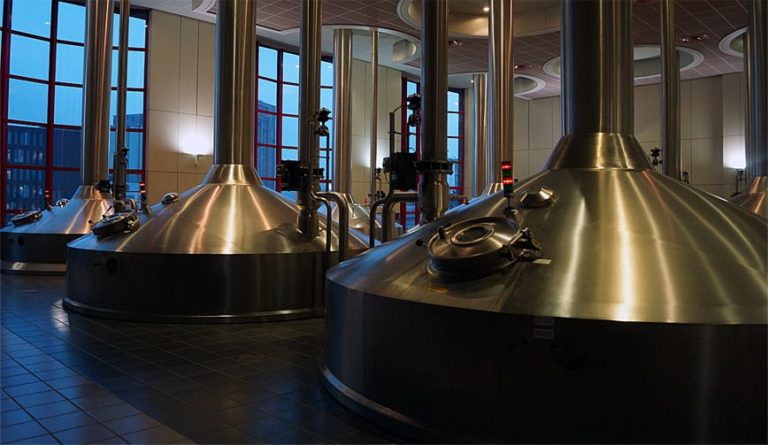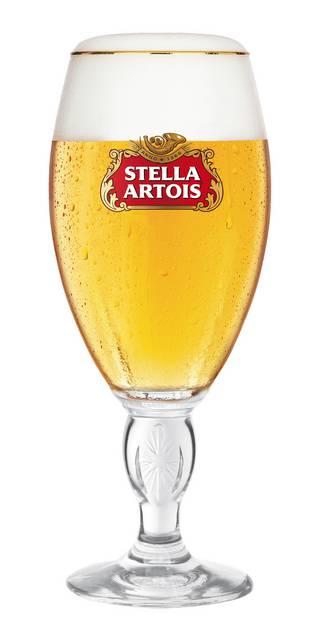
AB InBev Stella Artois brewery in Leuven
The world’s largest brewer, AB InBev is introducing what it claims is a greener way to put bubbles in your beer and reduce its CO2 emissions by 5% at the same time.
Here’s the deal…
According to The Guardian, the global giant has “developed a technique to generate the gas bubbles needed for the malting of grains before fermentation without the need to boil the water and hops.”
For the last four years the Belgium-based company has been playing with brewing processes at their experimental brewery in Leuven, east of Brussels…beer bubble investigations that could make for a ‘greener environment, which eventually migrated to two larger scale breweries in the UK.
Generated through natural cooking techniques and the extensive use of water and heat, bubbles are an essential to a beer’s taste and mouthfeel. Unfortunately this approach to brewing ups the ante on CO2 emissions, a growing concern among environmentalists.
But now AB InBev has reportedly come up with a technique that keeps those crucial bubbles in your beer, but at a lower environmental cost.
Guardian reporter Daniel Boffey explains AB InBev’s new process this way…
“The new method involves heating the brew to below boiling point and then blowing nitrogen or CO2 into the tank to create bubbles without changing the taste.
The company claims that because the beer is brewed at a lower temperature in the early phase, it can also stay fresh for longer. The bubbles found in the finished product are still to be produced in the normal way, typically by the yeast’s digestion of sugars or by pressurization in the kegging process.”
David De Schutter, AB InBev’s European Research Director details the technique and its benefits ….
“Our innovation is to heat everything up to just below boiling point, which provides 80% energy savings at this point in time. There is a lot less steam released, which allows you to spend less on water. In our case, we managed to go from 5% evaporated water to less than 1%.”
The company claims that once this technique is adopted in all its breweries around the world, it will reduce its global CO2 emissions by 5% a year (that’s the equivalent to the energy consumption of 120,000 families (!).
The new brewing methodology would also save water consumption “the equivalent of 1,200 Olympic swimming pools”.
AB InBev hopes to have all its breweries implementing this CO2 emissions-saving technique within 10 years, and they are graciously offering to share the patented technology free of charge with smaller brewers.
 American Craft Beer The Best Craft Beer, Breweries, Bars, Brewpubs, Beer Stores, And Restaurants Serving Serious Beer.
American Craft Beer The Best Craft Beer, Breweries, Bars, Brewpubs, Beer Stores, And Restaurants Serving Serious Beer.
